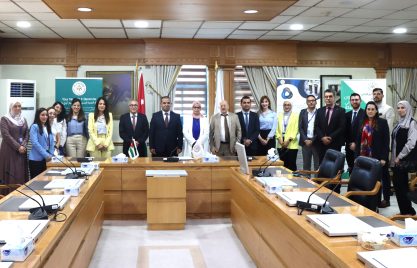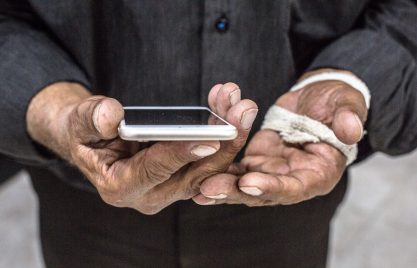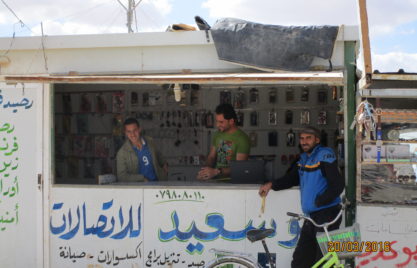GIZ Jordan- under its Digittances project- signs a cooperation agreement with the World Food Programme (WFP) to collaborate on the digitization of food assistance payments for Syrian refugees and vulnerable Jordanians.
Amman, Jordan – A ceremony was held on March 12, 2019 at the GIZ Jordan Country Office to celebrate the signing of a cooperation agreement between the World Food Programme (WFP) and GIZ. Through the cooperation, the signatories intend to leverage the high penetration of mobile phones and the availability of a mobile payments infrastructure in Jordan to extend aid payments to WFP beneficiaries through mobile payment services. This intention aligns with the project objective of GIZ’s Digi#ances project, namely to improve access to remittances and other financial services through digital solutions. It also supports WFP’s intention of providing Syrian refugees and vulnerable Jordanians with the widest range of modalities through which to redeem their monthly assistance.
The cooperation agreement was signed by Ms. Sarah Gordon-Gibson, WFP Country Director and Representative and Dr. Michaela Baur, GIZ Country Director. The ceremony was attended by Mr. Bernd Kuzmits, Deputy Head of German Development Cooperation of the German Embassy, along with the respective project teams. The latter jointly presented the project and facilitated a discussion on the significance of collaboration between WFP and GIZ.
‘’Through our partnership with WFP, we will advance access, awareness and usage of digital financial services among the target population of low-income Jordanians and Syrian refugees’’, said Michaela Baur.
‘’Jointly, we will promote financial inclusion of the target groups through the implementation of a pilot project for redeeming WFP assistance through mobile money as well as tailored financial literacy and awareness interventions’’.
The signed cooperation agreement represents an important milestone on the journey to digitizing cash assistance in Jordan, which carries tremendous potential to financially include vulnerable, unbanked populations and provide aid beneficiaries with more convenient and dignified modalities to receive assistance.
By Byoung Hwa Hwang



